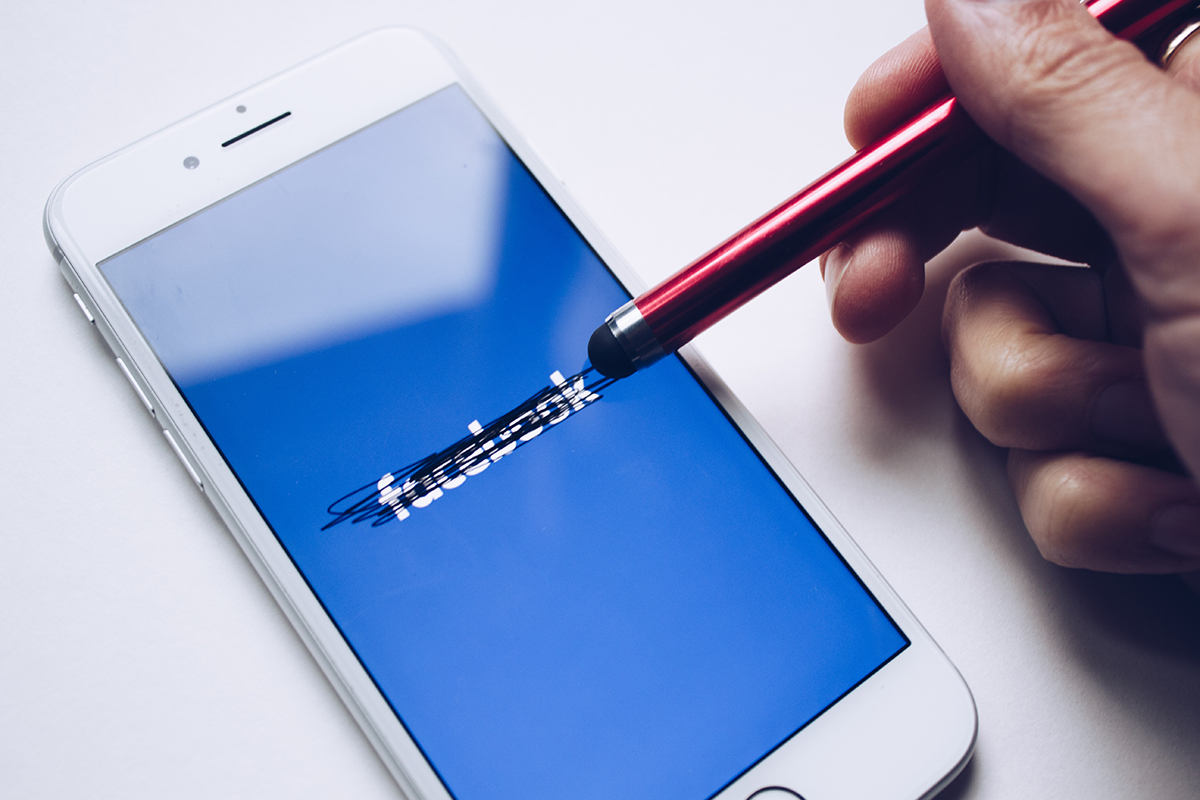Social Media
Social Media: The Case for Deactivation
Technologically speaking, social media could steer their users’ hijacked minds towards the known beneficial functions and away from the harmful ones.

In 2017, an article sub-titled “The More You Use Facebook, the Worse You Feel” appeared in my Facebook newsfeed. I found it scientifically rigorous and persuasive, and so, not wanting to feel worse, I deactivated my Facebook account. But then in the months that followed, I found scientific arguments that seemingly come to the opposite conclusion, namely, that social media are good for you. It turns out that I had only scratched the surface of a mountain of writing on this topic. So which is it? Should I re-activate my Facebook account? Should you deactivate yours?
To answer these questions, we need a common currency for measuring the costs and benefits of using Facebook, and other major social media platforms like Snapchat and Instagram. Surprisingly, perhaps, the mountain of articles on this topic doesn’t yet include this kind of systematic cost-benefit analysis. One of my goals here is to provide one. Drawing on the last two decades of scientific research, I’ll show that major social media platforms do more harm than good, thereby increasing the incidences of psychological disorders.
This gives most of us (not all!) a selfish reason to deactivate our accounts. But it also contributes to a moral case for deactivation. The major social media platforms ‘hijack’ their users’ minds, causing users to check compulsively for updates and prolonging their newsfeed scrolls. When we use a social media platform, we therefore contribute to our friends’ harmful cravings.
Finally, by deactivating our accounts, we can ‘vote’ with our time and attention, just as other consumers ‘vote’ with their wallets. If we deactivate our accounts for ethical reasons, and turn our attention elsewhere, we diminish the profitability of the unethical design features, such as the like button and the newsfeed, and incentivize their reform or removal.
In the wake of revelations that Facebook unethically allowed user data to fall into the hands of strategists working on Trump’s 2016 presidential campaign, the chorus calling on social media to reform themselves—or for government to regulate them—has been growing. While this is a welcome development, the proposals currently being canvassed are narrowly focused on privacy and do not address social media’s role in diminishing our mental health and well-being. My focus here will be on the latter problems, not because I see them as more important, but because their seriousness has so far been obscured by the notion that by ‘bringing us together’ social media compensate for their harms. I see these two calls for change—based on privacy and mental health—as mutually supporting.
Social Media Reduce Subjective Well-being
The most studied and significant of social media’s negative psychological effects is their eliciting negative interpersonal comparisons and envy in users. A typical newsfeed depicts various friends having non-stop fun, achieving ever greater levels of success, and looking surprisingly attractive (often in filtered pictures). The user sees these ‘highlight reels’ of others’ lives on social media, compares them to her own imperfect real life, and when she fails to measure up, feels worse. Of course, many of us also use face-to-face communication to portray ourselves positively. But we don’t do so to the same degree. In online contexts, we have more control over how we are perceived, and therefore more and better opportunities to self-promote. Some users irresponsibly abuse these opportunities. Many more, I prefer to assume, understandably fail to foresee the aggregate effects of many individually reasonable self-promoting posts.
Social media are harmful in at least one other way. In a 2014 paper, psychologists Christina Sagioglou and Tobias Greitemeyer found that people instructed to actively use Facebook were less likely to characterize their time as having been spent meaningfully than were groups instructed to browse the internet or given no instructions on how to spend their time.1 This worsened the Facebook users’ moods as compared to the two control groups.
Those are the psychological downsides of social media. There’s a big upside too, though: social media improve the average user’s social life, strengthening bonds between both friends and acquaintances.2 They do so by lowering the costs of interaction across distances and by ‘nudging’ users to be more social.
So, social media bring with them psychological benefits and harms. To compare the two, we need to be able to appraise them in a common currency, one whose pursuit is central to living well. Since the 1960s, psychologists have been developing concepts of happiness that ground just this kind of measurement and comparison.
The aspect of happiness that has received the most attention in this research is called ‘avowed happiness’ or ‘subjective well-being.’ This refers to the subject’s own assessment of how well they’re doing. It measures how good their life or mood seems to them.
There are two major, relatively independent categories of subjective well-being: mood (sometimes referred to as ‘affective well-being’) and life satisfaction. Mood has to do with the constant flow of positive and negative emotions and feelings. An influential article characterizes affective well-being as “the extent to which a person feels enthusiastic, active, and alert” as opposed to angry, contemptuous, disgusted, guilty, scared, and nervous. Life satisfaction, by contrast, has to do with how well people believe their lives on the whole to be going.
Imagine forgetting your cares and cutting loose at a party despite knowing that your life, on the whole, isn’t going well. This is high affective well-being and low life satisfaction. Or imagine sitting in traffic, getting irritated and hostile, though you know that your life is going well. This is high life satisfaction and low affective well-being. Both kinds of subjective well-being are good in and of themselves and yield benefits like longevity and protection against disorders.
The preponderance of the evidence indicates that social media make us subjectively worse off in both senses. On the whole, there are more and methodologically stronger studies supporting this conclusion than its denial. For example, the paper by Holly Shakya and Nicholas Christakis—the one that convinced me to deactivate my Facebook account—is significantly more rigorous than any other study on social media and well-being to date. In the study, Shakya and Christakis asked a group of Facebook users to report on their sense of mental well-being and life satisfaction once a year for three years. After controlling for income, education, age, sex, marital status, race, and offline relationships, they found that after a typical user increases their Facebook usage over the course of a year, they consider themselves worse off in both senses. This study has a large sample size, relies on actual records of social media usage rather than user reports, tracks changes in well-being over time (it’s ‘longitudinal’), and tracks these changes over a long period of time. None of the studies associating social media with increased well-being can boast all of these crucial virtues.
Perhaps more importantly, findings of a positive association between social media and well-being really link specific uses of social media to increased well-being. The research indicates that tailored and targeted communication is generally beneficial while posts broadcast to one’s entire network, liking, and following links are harmful. That there are some beneficial uses doesn’t tell us much about whether social media are themselves beneficial. By analogy, if we were to find that it’s healthy to consume a miniscule amount of refined sugar under certain specific conditions, we wouldn’t conclude that people should stock up on M&Ms and rely on their willpower to eat the right amount of them in the right way. We know that many people give in to temptation when M&Ms are too available. The problem, then, is that social media users probably can’t just choose to avoid social media activities they know to be harmful; I’ll return to this point.
But maybe quitting major social media platforms altogether would be isolating to a significantly greater degree than any mere decrease in usage. And so maybe we shouldn’t deactivate our accounts.

The evidence directly addressing this possibility favors deactivation, although it’s a bit more conflicting. There are two relevant studies. In one of them, by Morten Tromholt, a group who quit Facebook for a week reported significantly better mental health and well-being than a control group who continued to use the platform.3 But in another recent study, by Eric Vanman and colleagues, a group who quit Facebook for five days reported lower life satisfaction—but also lower cortisol levels (which are an indicator of stress) and more time devoted to face-to-face interaction.4
What should we make of these conflicting results? I think the Tromholt study commands higher credence both for methodological reasons (larger sample size, longer interval between measurements) and because it better coheres with the research on social media’s negative overall effects on well-being. Furthermore, if we’re going to apply Vanman and colleagues’ life satisfaction results to the decision about deactivation, then we should also apply their finding that social media increase stress. Given this finding, and the serious long-term consequences of stress, Vanman and colleagues conclude that “[t]aking short breaks from Facebook could be beneficial to one’s health, as any prolonged stress could contribute to mental and physical disorders.”5
Social media’s effects on well-being and stress levels are especially alarming in light of their associations with psychological disorders like depression, insomnia, and anxiety disorders. As psychologist Mai-Ly Nguyen Steers states in her review of the scientific literature on the subject, “a majority of studies seem to provide evidence” that Facebook is associated with depression.6

How Social Media’s Mental Hijacking Will Prevent Users From Making Better Choices
I can imagine a proponent of social media responding: “We know which activities are beneficial and which are harmful, so it’s up to users to choose the former and avoid the latter. To blame social media for their users’ reductions in well-being would be like blaming the phone when someone gets an upsetting call.”
I think this response reflects a naïve understanding of behavior and of social media. The major social media platforms are designed to condition their users to spend more time on them. They are perfecting this conditioning process internally, in their own research departments, while receiving contributions from the Stanford Persuasive Technology Lab, which aims to understand how to “change people’s beliefs and behaviors” through “computing products.” As a result of this research, to quote Tristan Harris, the smartphone is “possibly the largest source of influence over 2 billion people’s thoughts that has ever been created.”
As profit-seeking corporations, social media platforms have been changing our behavior in ways that maximize their profits. And this means getting and keeping our attention, whether we want to give it or not. The more attention a social media platform gets, the more advertising revenue it will receive.
Social media condition us to devote our attention to them by channeling the chemical signals of social approval and entertainment (dopamine) into the region of the brain responsible for cravings and addiction (the nucleus accumbens). Initially, some messages, likes, or interesting newsfeed content cause a pleasurable dopamine release. After enough such pleasurable experiences, the brain associates them with the look of the newsfeed or sound of a notification. At this point, the sight of a newsfeed or sound of a notification will release dopamine in anticipation of the associated pleasurable experience. This anticipatory release grounds a craving for the actual reward and typically initiates the bodily movements involved in seeking it—in this case, swiping one’s finger to scroll through the newsfeed or checking one’s notifications.
Now acquiring a craving through this kind of dopamine feedback loop isn’t necessarily a bad thing. Our distant ancestors evolved the craving system to calibrate the strength of certain urges with their contributions to survival and reproduction. Thus, the typical Paleolithic hunter-gatherer would have enjoyed reasonable cravings for fresh, whole fruit, which contained a healthy balance of unrefined sugar and fiber. We can contrast these kinds of natural cravings with artificial cravings. This is the kind of craving that results when one person, A, hijacks the process in another, B, by aligning B’s dopamine releases to A’s interests. This is precisely social media’s business model. Another aspect of artificial cravings is that the hijacker ramps up the dopamine release to unnaturally high levels or times them to unnaturally effective intervals. Zeroing in on the most effective such interval is one way to “change belief and behavior” through “computing products.” Think of how the like button caused notifications to occur far more frequently than would feelings of social approval in any natural setting.
I fear that social media’s mental hijacking will persistently thwart users’ informed choices about best uses of the media. That is, I would wager that most users will sooner or later succumb to psychologically harmful cravings, such as to scroll through their newsfeeds. It’s a sad fact that, in general, artificial cravings—for gambling, junk food, drugs, and pornography, e.g.—are formidable. Too many people indulge them to the point of serious self-harm. Maybe social media-related cravings will turn out to be more manageable; I hope they will. For now, those who assume as much again assume the burden of scientific proof.
Technologically speaking, social media could steer their users’ hijacked minds towards the known beneficial functions and away from the harmful ones. I fear that, financially speaking, they won’t. Or at least, not without concerted pressure from consumers or government regulation. As Shakya and Christakis have shown, liking is highly psychologically harmful and can’t be justified by appeal to bringing people together—early studies conducted before the introduction of the like button already detected social media’s positive effects on relationships. But the like button gives the owners of social media platforms an endless supply of irresistible ‘ding!’s going straight to users’ nucleus accumbens. Until a consumer movement makes this and other functions less profitable than beneficial alternatives, social media will continue to diminish their users’ well-being.
Deactivation
So what should we do about the harms of social media? Some of us might be in a position to help The Center for Humane Technology, a consumer advocacy group dedicated to freeing our minds from the control of social media apps. An important part of their strategy is to pressure Apple, Microsoft, and Google to develop operating systems that give users more defenses against social media’s mental hijacking. But this hoped-for, large-scale change in computer operating systems may be a long way away. What should we do in the meantime?
We can do our best to be better social media users. The Center for Humane Technology also has several suggestions on how to do so. But our vulnerability to mental hijacking makes it unwise to rely on this strategy alone. Even if we managed to limit ourselves to the beneficial kinds of communication, we would still be helping social media instill cravings in our friends. When we write on a friend’s timeline, for example, we might make them feel supported and connected to us. But we might also send their nucleus accumbens a habit-reinforcing shot of dopamine, thus keeping them hooked on their psychologically harmful newsfeed.
Many of us therefore have good reason to deactivate. By deactivating, we escape the harms of social media, inflict fewer of these harms on our friends, and stop contributing to social media platforms’ mental hijacking of our friends.
Deactivation may also pressure social media companies into ethical reforms. If the harmful features of major social media platforms cost them enough users, and therefore enough profit, they will be forced to re-think their inclusion of these harmful features. To be successful, therefore, deactivation must be part of ‘a cultural awakening,’ with a clearly articulated basis in morality and public health.
I’ve been careful to say that “most” of us should deactivate. There may be some people who shouldn’t. For example, it may be that social media provide a helpful alternative to face-to-face interaction for those with high social anxiety.7 Some people who use social media for special political or artistic purposes might find meaning in doing so.
What I am claiming is that for a large majority, deactivation is the psychologically and ethically safe bet.
Author’s Note: I would like to thank Madeline Comeau, Anthony Cross, Felipe Dias, Bob Fischer, Corbett Hancey, Stephen Makin, Alan Surovell, and Rhonda Watson for helpful feedback on earlier versions of this essay.
References:
1 C. Sagioglou and T. Greitemeyer, “Facebook’s emotional consequences: Why Facebook causes a decrease in mood and why people still use it,” Computers in Human Behavior, vol. 35, pp. 359-363, 2014. Doi: 10.1016/j.chb.2014.03.003
2 C. Qilin, Y. Lu, D. Dong, Z. Tang and L. Yongqiang, “The Roles of Bridging and Bonding in Social Media Communities,” Journal of the American Society for Information Science and Technology, vol. 64, no. 8, pp. 1671-1681, 2013. Doi: 10.1002/asi.22866
3 M. Tromholt, “The Facebook Experiment: Quitting Facebook Leads to Higher Levels of Well-Being,” Cyberpsychology, Behavior, and Social Networking, vol. 19, no. 11, pp. 661-666, 2016. Doi: 10.1089/cyber.2016.0259
4 E. Vanman, R. Baker and S. Tobin, “The Burden of Online Friends: The Effects of Giving Up Facebook on Stress and Well-Being,” The Journal of Social Psychology, vol. Published online, 2018. Doi: 10.1080/00224545.2018.1453467
5 Vanman and Colleagues, 2018.
6 M.-L. N. Steers, “‘It’s Complicated’: Facebook’s relationship with the need to belong and depression,” Current Opinion in Psychology, vol. 9, pp. 22-26, 2016. Doi: 10.1016/j.copsyc.2015.10.007
7 M. Indian and R. Grieve, “When Facebook is Easier Than Face-to-Face: Social Support Derived from Facebook in Socially Anxious Individuals,” Personality and Individual Differences, vol. 59, pp. 102-106, 2014. Doi: 10.1016/j.paid.2013.11.016






